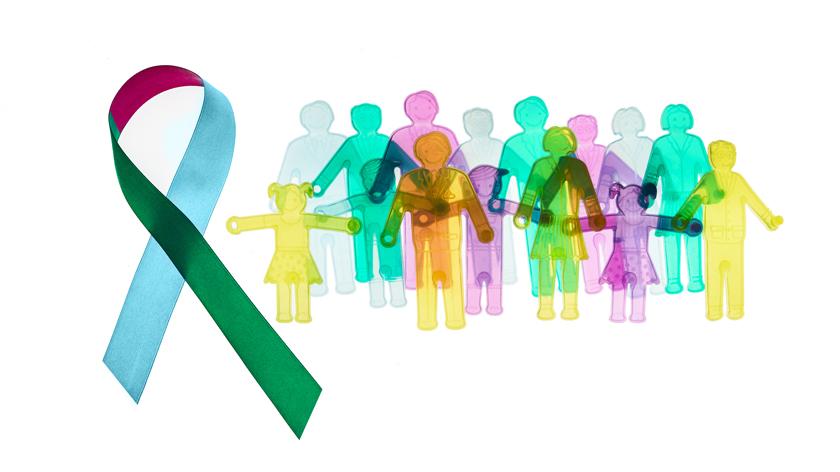Caring for rare: Celebrating Rare Disease Day 2023

Established in 2008, Rare Disease Day is observed annually on what is considered the rarest day of the year - February 28th or 29th, depending on leap years. Rare Disease Day aims to raise awareness of the over 7,000 known rare diseases, while striving to improve access to treatment and medical representation for patients and their families.
Created by The European Organization for Rare Diseases (EURORDIS), this day enables rare disease advocacy work to progress locally, nationally, and internationally. Since its inception, Rare Disease Day has played a critical role in building an inclusive and diverse international rare disease community. EURORDIS partners with many global organisations for this yearly celebration, including their United States-based sister company, The National Organization for Rare Disorders (NORD).
Obtaining a diagnosis is only the first step in the complex journey facing rare disease patients and those who care for them. Many lack the direction or resources needed to obtain specialised medical care. Due to the nature of these uncommon diseases, a high percentage will experience a sense of isolation. Some will seek connections within the rare disease community to alleviate their emotional and logistical burdens.
In order to offer support to those with uncommon disorders, it is essential first to understand what a rare disease is and the inherent needs of these patients and their families.
What is a rare disease?
The European Union defines a disease or condition as rare if it affects fewer than one in 2,000 people within the general population. When added together, diseases like Duchenne's muscular dystrophy, cystic fibrosis, and spinal muscular atrophy impact an estimated 3.5 million people in the United Kingdom and over 25 million in the US.
Approximately 80% of all rare diseases are genetic, with about half of these affecting paediatric patients. In these cases, the rare disease affects not only the child diagnosed, but also their families, friends, and caregivers. Due to the genetic component of these disorders, more than one child within a family unit can suffer from the same rare condition, amplifying the already complicated nature of caring for a young loved one who may be suffering.
Over 500 rare cancers have been diagnosed to date, comprising more than 25% of all known cancers. Because cancer rates in children are generally very low, all paediatric cancers are considered to be rare. Similar to genetic diseases, comprehensive medical knowledge about cancers diagnosed during childhood is often relatively low.
Due to the inherent small patient population associated with rare diseases, clinical research for these conditions has traditionally been extremely limited. Currently, over 90% of rare diseases are still without a European Medicines Agency (EMA) or US Food and Drug Administration (FDA)-approved treatment. Thus, moving new drugs and therapies through lengthy clinical research and development channels with maximum efficiency is imperative. However, the very nature of rare diseases complicates trial participation and completion.
Improving treatment options through patient concierge services
Despite determined efforts from pharmaceutical sponsors and clinical research organisations (CROs), rare disease trial recruitment and retention continue to be major roadblocks in bringing new treatment options to market faster.
The clinical trial process is foundational in transforming rigorous clinical research into healthcare advancements. However, nearly 80% of clinical trials fail to finish on schedule, with 20% delayed over six months or more. While the reasons for these delays vary, an estimated two-thirds of trial sites fail to meet initial patient enrolment target numbers. Additionally, 85% of studies cannot retain enough participants through trial completion.
One of the most significant factors preventing enrolment and retention in rare disease clinical trials is the travel associated with study participation. On average, a clinical trial patient travels 40 miles from home to participate in a study. With the limited availability of clinical trial opportunities for rare and ultra-rare disease patients, travel can often be far more extensive, sometimes crossing state and country borders. The additional stress associated with finding local medical care and lodging, securing passports and visas, and obtaining translation and interpretation services often discourages patients and their caregivers from agreeing to this much-needed treatment.
Given the various obstacles facing rare disease clinical trial participants, pharmaceutical sponsors and CROs should seriously consider investing in a patient concierge services provider to improve trial efficiency. Much like a hotel concierge, a patient concierge manages all logistics of study participation. These services include, but are not limited to:
- Itinerary planning (flight and rail ticketing, hotel accommodations, ground transportation)
- Reimbursements for meals, incidentals, mileage, tolls, and parking
- Wage reimbursement, where applicable
- Interpretation and translation services
- Visa and passport assistance
- Long-term housing and relocation services
In addition to managing the logistics of trial participation, a patient concierge continuously provides personalised support to rare disease study participants and their caregivers, allowing them to feel more comfortable and secure throughout the duration of a trial. This one-on-one level of support allows the patient to focus on their treatment and the caregiver to focus on assisting the patient, easing the path to trial completion for both.
When a pharmaceutical sponsor or CRO chooses to include these services in their trial protocol, they put the needs of patients and caregivers first, showing their commitment to improving the overall trial experience. This trial model, in turn, leads to more successful trials with better data collection and more diverse treatment options.
Supporting the rare disease community
The rare disease community and its many disease advocacy groups often work in tandem with patients to reduce the burden of their disorder. However, there are limits to the benefits available to these patients and their families. Research has shown that families caring for someone with a rare disease often have many additional unmet emotional, financial, and medical needs.
If you or someone you care for is affected by a rare disease, joining advocacy groups, forums, and online communities can offer the support and additional resources needed to assist with the added burdens you may face. Online communities are often a wealth of information for innovative treatments and potentially life-enhancing or life-saving clinical trial opportunities. Additionally, they can be an essential means of emotional support as well.
Rare disease advocacy group resources for families
- Circle of Care Guidebook for Caregivers of Children with Rare Illnesses
- NORD Rare Kids Network
- Global Genes
- Genetic Alliance Advocacy Atlas
- NIH Genetic and Rare Diseases Information Center
Visit rarediseaseday.org to get involved in Rare Disease Day throughout February. Learn about events near you, read inspiring stories from patients and caregivers, and much more!
About the author
 Scott Gray is the co-founder and CEO of Clincierge, a provider of patient support services for clinical trials. Since 2015, Clincierge patient coordinators have managed logistics and reimbursements in more than 300 clinical trials worldwide.
Scott Gray is the co-founder and CEO of Clincierge, a provider of patient support services for clinical trials. Since 2015, Clincierge patient coordinators have managed logistics and reimbursements in more than 300 clinical trials worldwide.












